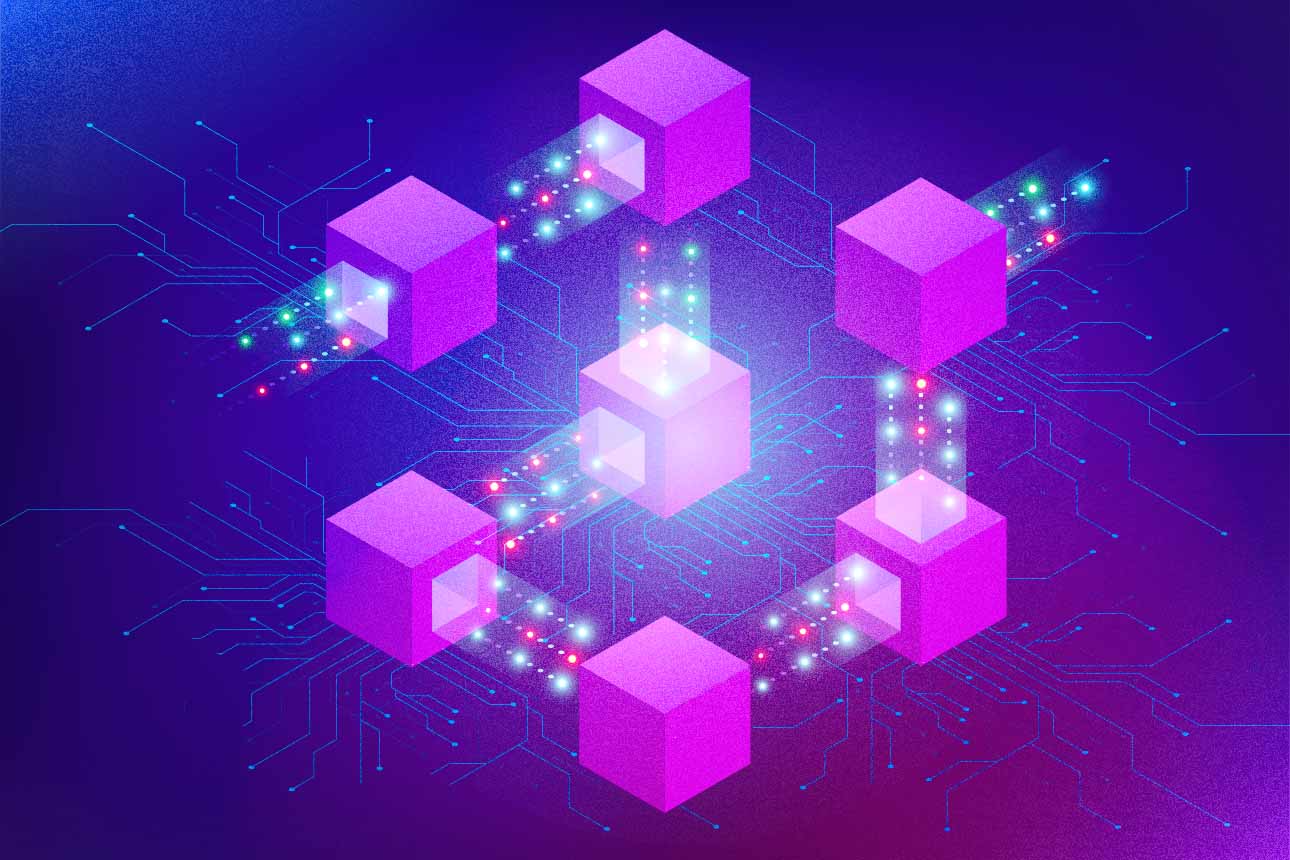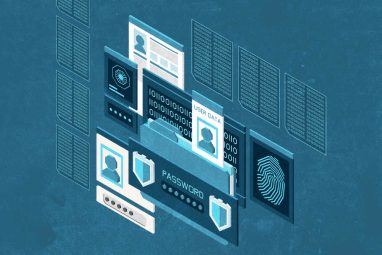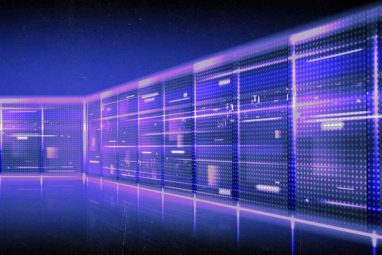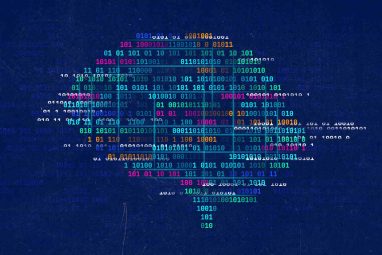AI, Blockchain, and IoT Technologies are Shaping Businesses in the Middle East
These advanced technologies are now widely utilized across various domains and essential to businesses.
Topics
NEXTTECH
News
- AI professionals form a redefined workforce. But systemic roadblocks persist, survey finds
- AI-Driven Scams Surge as Microsoft Blocks $4 Billion in Fraud Attempts
- Identity-based Attacks Account for 60% of Leading Cyber Threats, Report Finds
- CERN and Pure Storage Partner to Power Data Innovation in High-Energy Physics
- CyberArk Launches New Machine Identity Security Platform to Protect Cloud Workloads
- Why Cloud Security Is Breaking — And How Leaders Can Fix It

[Source photo: Krishna Prasad/Fast Company Middle East]
In the fast-changing digital world, businesses constantly seek innovative ways to drive digital transformation and gain an edge over their competitors. The combination of the Internet of Things (IoT), blockchain, and AI technologies has emerged as a game-changer for businesses in the Middle East.
The convergence of these technologies is transforming various industries, from healthcare and manufacturing to finance and logistics, empowering organizations to unlock new opportunities, improve efficiency, and deliver innovative experiences.
Our cities are getting smarter by the day. Healthcare is also becoming more personalized to cater to individual needs, and supply chains are becoming more efficient and transparent.
Embracing Advanced Technologies
“Businesses in the Middle East, particularly in the GCC region, are rapidly embracing advanced technologies like AI, blockchain, and IoT to propel themselves into the realm of smart, data-driven, and highly automated enterprises,” says Salvador Anglada, CEO of e& enterprise. “This integration isn’t just about staying current; it’s a strategic move to expand beyond borders, attract more customers, and become global players in their respective industries.”
AI is revolutionizing operations across industries, from customer service to optimizing supply chains. In the retail sector, AI-powered chatbots provide personalized customer service, while in the financial sector, they detect fraud and automate routine tasks, saving time and reducing costs.
For example, IFS software helped Saudi Electric optimize work functions, leading to a 25% cost reduction and a 20-30% reduction in carbon emissions.
“We leverage AI to drive sustainability and efficiency across industries, particularly in energy and utilities, which are highly carbon-intensive and undergoing significant transitions,” says Mark Moffat, CEO of IFS. “We are focused on analyzing data to measure carbon units related to processes and providing reporting capabilities for regulatory compliance.”
Blockchain, known for its secure and transparent nature, streamlines processes and improves transparency in finance, real estate, and supply chain management.
The IoT is also significantly transforming businesses in the Middle East. By connecting devices and sensors to the Internet, businesses can collect and analyze data in real time, leading to improved decision-making and efficiency. In the agriculture sector, IoT sensors are being used to monitor soil moisture levels and optimize irrigation, while in manufacturing, IoT devices are being used to track the location of assets and optimize production processes.
Data-Driven Decisions
With many devices and protocols available, businesses can struggle to integrate IoT solutions into their existing systems. To address this challenge, businesses can partner with IoT providers, offering comprehensive solutions and support.
e& enterprise has been at the forefront of implementing initiatives across various sectors in the Middle East. In Dubai’s Jumeirah Lakes Towers, e& enterprise developed and supported the DMCC smart district, where over 100 connected buildings, 1800 smart lighting systems, and 370 smart bins generate more than 25,000 data points. This ecosystem enables data-driven decisions to optimize resource consumption and reduce emissions, contributing to smarter and more sustainable urban development.
Meanwhile, e& enterprise collaboration with the Abu Dhabi Department of Economic Development (ADDED) aims to promote digital transformation in Abu Dhabi’s manufacturing sector by facilitating the adoption of Industry 4.0 technologies, promoting sustainable practices, and empowering manufacturing enterprises with cutting-edge technologies.
Anglada says that IoT adoption is skyrocketing with the advent of 5G connectivity. The number of connected devices is expected to double from 15 billion in 2023 to 30 billion in 2030. Companies leverage IoT to gain data-driven insights into their operations and assets, enabling more informed decision-making to optimize resource utilization and management. This translates into cost reductions and optimized operations, contributing to sustainability efforts by minimizing emissions.
“In essence, integrating advanced technologies like AI, blockchain, and IoT isn’t just about keeping pace with the digital age; it’s about staying ahead and thriving in a rapidly evolving business landscape. By leveraging these technologies effectively, businesses in the Middle East are becoming smarter and more data-driven and experiencing tangible benefits across their operations and customer interactions,” adds Anglada.
“A key pillar of our journey has been integrating exponential technologies like AI, blockchain, and IoT to enhance the educational experience,” says Krishnan Gopi, Group Chief Disruption Officer & CEO – EdTech, GEMS Education. “By incorporating these advanced technologies, we’ve personalized learning experiences and fostered an engaging environment that promotes continuous learning. Additionally, we’ve streamlined our operations, saving thousands of person-hours and allowing staff to focus more on core activities and less on administrative tasks. This has increased productivity and cost efficiency across all our schools.”
He adds, “We are piloting blockchain-based micro/ digital credentialing.”
According to Gopi, educational institutions face unique challenges when adopting advanced technologies. These include change management and awareness, consistent tech investment, the right strategic partners/vendors, and privacy and data security.
“It’s advisable to customize AI solutions rather than starting from scratch and to avoid a solo mindset by leveraging strategic partnerships for necessary resources. Recognizing that exponential tech implementation is a journey involves fostering cultural and mindset changes alongside financial investments,” says Gopi.
At the NextTech Summit, the region’s foremost summit focusing on emerging technologies, global experts, MIT professors, industry leaders, policymakers, and futurists will discuss AI Black Box, Quantum Computing, and Enterprise AI, among many other technologies, and their immense potential. The summit, with BCG as Knowledge Partner and Astra Tech as Gold Sponsor, will be held on May 29, 2024, at Madinat Jumeirah in Dubai, UAE.





